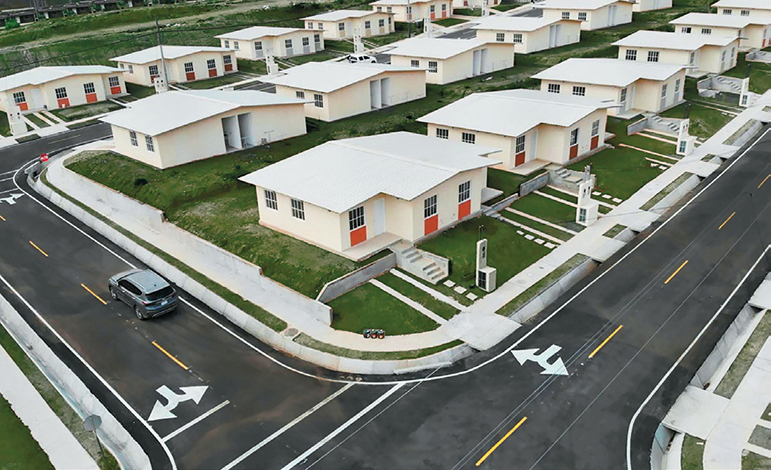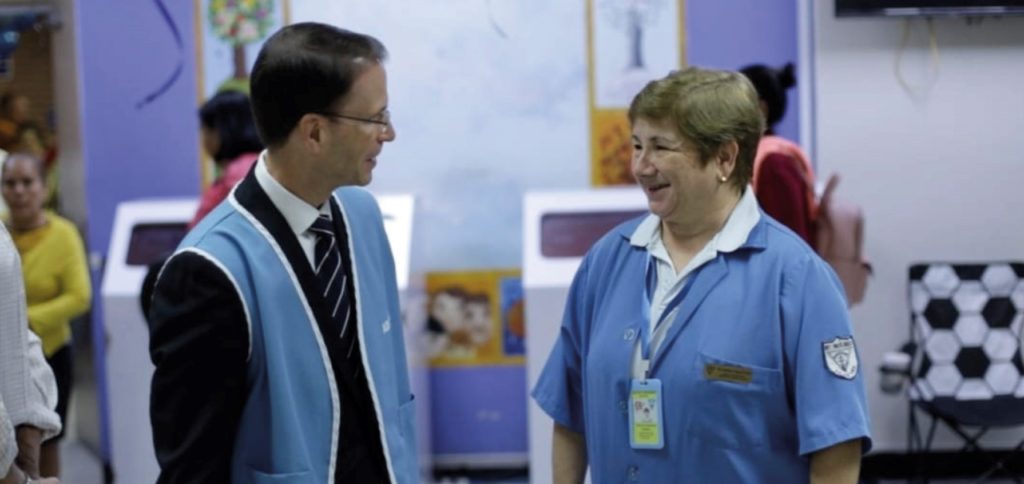We invest in Banco La Hipotecaria
Home ownership plays a key role in helping low- and middle-income citizens build wealth and form a pathway out of poverty. Research has shown that when low-income families move out of substandard housing and into decent and affordable homes, homeowners and their families frequently improve their health, educational attainment, safety and personal wealth.1
Beginnings
Banco La Hipotecaria (BLH) was founded in 1997 as an unregulated financial institution to provide primary residence mortgages to families in the lower-middle income segment of the Panamanian population. At the time, much of Panama’s financial sector focused primarily on servicing large corporations, businesses and high net worth individuals. Few catered to individual domestic borrowers or offered 30-year mortgages to a low-income population.

Home Ownership: A Reality
Having received its banking license in 2010, BLH today remains one of the only providers of private mortgages in Panama and El Salvador, with products ranging from mortgages for new and existing homes to refinancings, home improvement loans, personal loans, insurance, and deposits. On a monthly basis, the company originates between $6-$8 million of mortgages in Panama and $2-$3 million of mortgages in El Salvador. The average size of a mortgage originated by BLH is $38.5k in Panama and $42.5k in El Salvador and BLH will finance up to 98% of a home’s value, which allows low-income families to own property when they otherwise would not be able to afford a larger down payment. Furthermore, BLH only finances the purchase of primary residences, which ensures that the institution remains committed to its mission of expanding homeownership among Panama’s low- and middle-income classes.
Additionally, all homes financed by BLH must pass stringent assessments to ensure that they are properly connected to municipal infrastructure, such as paved streets, water and sewer systems and the power grid.

BLH’s low- and middle-income customers work as teachers, nurses, policemen, bookkeepers, clerks and secretaries and typically have a household monthly income between $400 – $1,500. Unfortunately, even today, banks in Panama tend to avoid extending credit to low-income clients, given that it is much harder to cross-sell other financial products to them. BLH believes in home ownership as the starting point of economic stability and personal well-being and the company is committed to prudently advising its clients as to how to manage debt while assisting them in becoming responsible homeowners.
Social Responsibility
BLH is an Equal Opportunity Lender, something that is not typical in Latin America. Policies protect against lending discrimination based on race, color, religion, gender, and familial status. BLH also follows the UN Global Compact, a voluntary initiative based on CEO commitments to implement universal sustainability principles and take steps to support UN goals. BLH also provides financial education designed to teach 13 to 17-year olds the basics of personal finance and its employees regularly visit schools to teach sessions on budgeting, debt and building a good credit score.
1Habitat for Humanity, Beneficial Impacts of Homeownership (2016)
Portfolio metrics as of 6/30/20.
The RFI profiled here is presented for educational purposes only and may not represent all of the portfolio holdings and it should not be assumed that investments in the RFI identified and discussed were or will be profitable. The RFIs profiled were selected based on their financial inclusion and impact with no reference to amount of profits or losses, realized or unrealized.